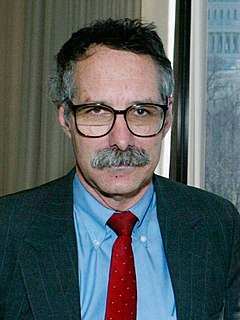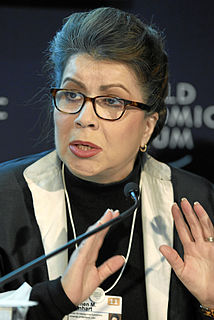A Quote by David Harvey
The onset of a crisis is usually triggered by a spectacular failure which shakes confidence in fictitious forms of capital.
Quote Topics
Related Quotes
One intriguing subplot of the economic crisis is the failure of most economists to predict it. Here we have the most spectacular economic and financial crisis in decades - possibly since the Great Depression - and the one group that spends most of its waking hours analyzing the economy basically missed it.
Perhaps more than anything else, failure to recognize the precariousness and fickleness of confidence - especially in cases in which large short-term debts need to be rolled over continuously - is the key factor that gives rise to the this-time-is-different syndrome. Highly indebted governments, banks, or corporations can seem to be merrily rolling along for an extended period, when bang! - confidence collapses, lenders disappear, and a crisis hits.
When I went to medical school, I was taught about two basic kinds of diabetes: juvenile onset and adult onset. From the time I did my training in medical school to the end of my residency we were already seeing the transformation of adult onset diabetes into Type II, which is what we call it now, which from my perspective is a euphemism we have draped over this condition to conceal the fact that what was a chronic disease in midlife is now epidemic in children. Frankly, Type II diabetes in a seven year old is adult onset diabetes. We just don't want to confront that unpleasant fact.
Most of these charges that people pay are economically unnecessary. There's no real cost behind them. There's no real value behind them. So, they're what the classical economist called empty pricing. Prices with no real cost value. What they called rent and fictitious capital. Capital claims on junk mortgage borrowers. The pretense is that all these debts can be paid but it's all fictitious, because everybody knows - at least on Wall Street everybody knows - that many debts can't be paid.
The banks themselves were doing business on capitals three-fourths of which were fictitious. This fictitious capital... is now to be lost, and to fall on somebody; it must take on those who have property to meet it, and probably on the less cautious part, who, not aware of the impending catastrophe, have suffered themselves to contract, or to be in debt, and must now sacrifice their property of a value many times the amount of the debt. We have been truly sowing the wind, and are now reaping the whirlwind.
The Nazi Party was, in the early 1920s, but one among many nationalist and volkisch radical political groups. It was catapulted to prominence with the onset of economic recession in the late 1920s... The Nazis owed their spectacular to a combination of two discrete sets of factors: first, their distinctive organisation and strategy; and secondly, the wider socio-economic conditions which created climates of opinion and sets of grievances on which the Nazis could prey.




































